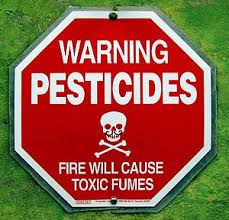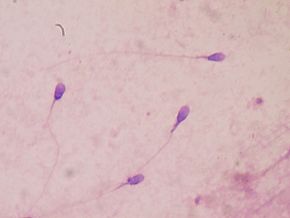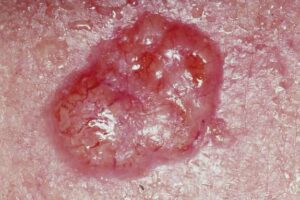
Many environmental protections are now in the process of being rolled back in the United States, including those for formaldehyde. This is a huge win for the chemical industry (more profits!), and a loss for us. For our health and for the environment.
Formaldehyde is used in many consumer products, such as personal care products, paints, crafting products, particle board, composite wood (e.g., furniture, cabinets), textiles, plastics, furniture foam. The problem is that it out-gasses and we inhale it, which can lead to health harms, such as effects on the skin and respiratory system and several types of cancers. Formaldehyde causes more cancer than any other chemical in the air.
The EPA is now proposing raising levels of formaldehyde that are "safe" for us to be exposed to. It wants to double the allowable threshold levels! The EPA sets standards for chemicals that say that any level of exposure below that threshold is considered safe. Therefore, levels of exposure to formaldehyde that are now considered a cancer risk will not be if the changes are approved.
Why these rollbacks? Chemical industry friendly people are now in charge of the EPA (top staffers are from the chemical industry) and the new focus is on economic development, prioritizing business interests, and not protecting human health and the environment. Of course research scientists and research are being thrown out.
Excerpts from The Guardian: Trump’s EPA wants to weaken formaldehyde protections – this is what it could mean
Donald Trump’s Environmental Protection Agency (EPA) is proposing to increase the levels of exposure to highly carcinogenic formaldehyde it considers safe. If successful, people would continue to be exposed to concerning amounts of the toxin in thousands of everyday products used across the economy, experts and advocates say. ...continue reading "Weakening Formaldehyde Regulations Will Harm Us"



 The women she looked at lived in farming areas, and additionally many had their residences frequently sprayed for insects. Ultimately, women exposed to high levels of pesticides tend to develop metastatic untreatable breast cancer, and at a younger age (unlike other areas where breast cancer is highly treatable). She pointed out that pesticides also have a negative effect on the immune system.
The women she looked at lived in farming areas, and additionally many had their residences frequently sprayed for insects. Ultimately, women exposed to high levels of pesticides tend to develop metastatic untreatable breast cancer, and at a younger age (unlike other areas where breast cancer is highly treatable). She pointed out that pesticides also have a negative effect on the immune system. Cancer is feared by all. It seems to strike randomly, but not always. Certain cancers that occur in both
Cancer is feared by all. It seems to strike randomly, but not always. Certain cancers that occur in both 
 For years it has been known that increasing the amount of fiber (and drinking enough fluids) in a person's diet helps to prevent constipation. A recent large multi-year
For years it has been known that increasing the amount of fiber (and drinking enough fluids) in a person's diet helps to prevent constipation. A recent large multi-year  Ultra-processed foods are linked to many
Ultra-processed foods are linked to many  Remember when back in 2015 the IARC (International Agency for Research on Cancer) said that the pesticide glyphosate (the active ingredient in Roundup) is a probable human carcinogen (cancer causing)? And the American chemical industry and FDA pooh-poohed that? Well, there have been a number of studies since then finding that yes, glyphosate results in tumors and other health harms, and is cancer causing (carcinogenic).
Remember when back in 2015 the IARC (International Agency for Research on Cancer) said that the pesticide glyphosate (the active ingredient in Roundup) is a probable human carcinogen (cancer causing)? And the American chemical industry and FDA pooh-poohed that? Well, there have been a number of studies since then finding that yes, glyphosate results in tumors and other health harms, and is cancer causing (carcinogenic).
